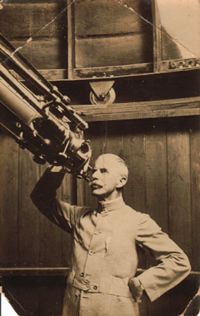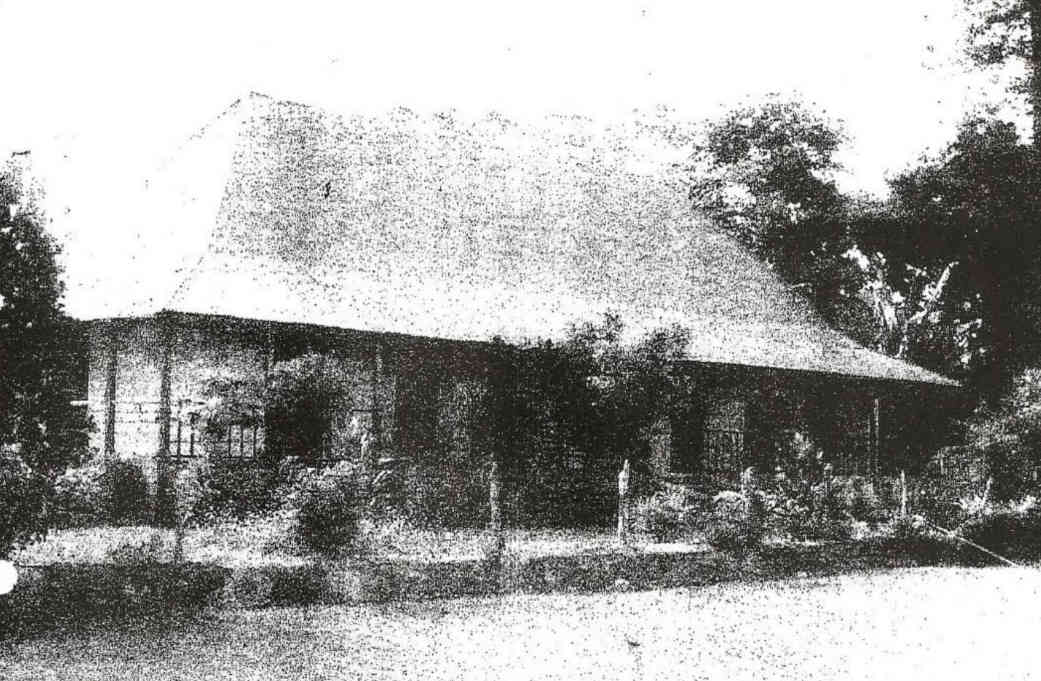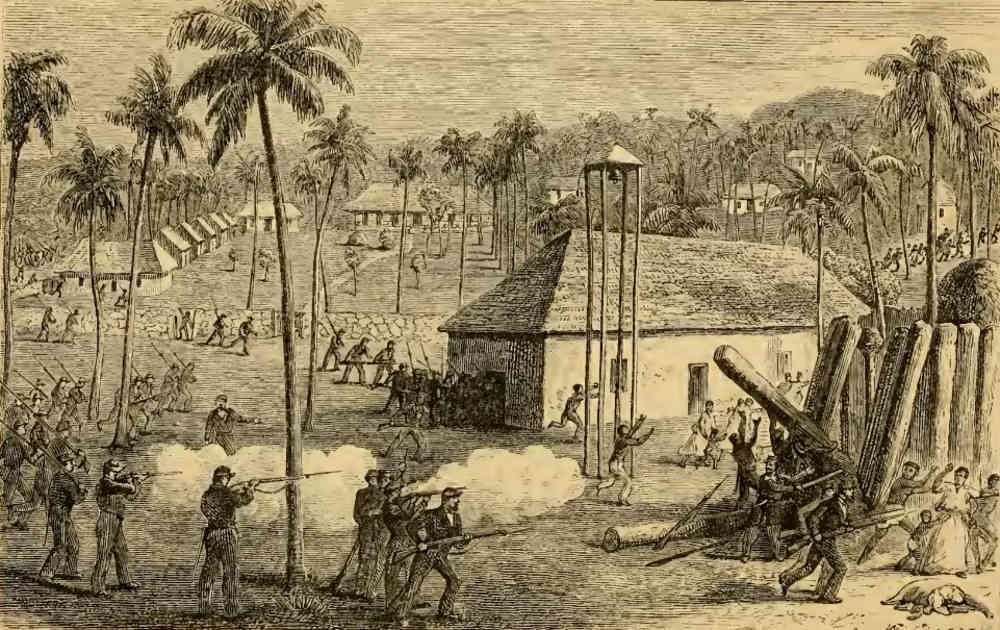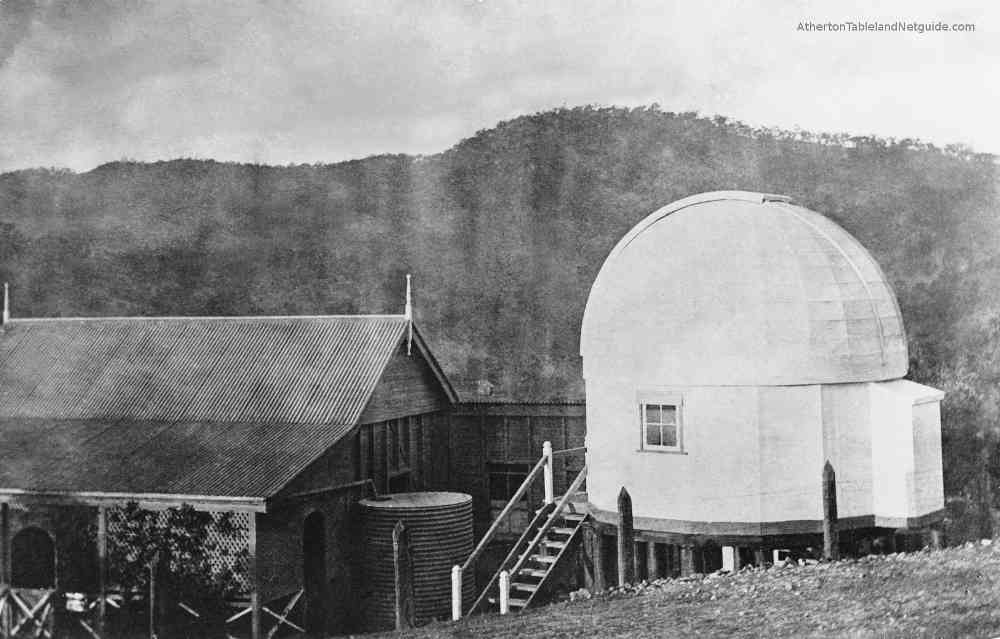

* * *
William McFarlane was born on a tropical island in 1866; the son of British missionary parents serving the London Missionary Society, in a territory that had recently come into the possession of the French. It was a territory not only contested between two nations, but contested between two faiths: Protestant vs. Catholic.1

Under the leadership of Samuel McFarlane, the LMS mission at Chepenehe flourished, while the Catholic missionaries struggled to survive.
The French colonial administrators, however, resented the presence of the London Missionary Society. In 1864, the governor sent a detachment of soldiers to Chepenehe, to enforce a ban on both the use of English, and the local native language, in schools and publications (Samuel McFarlane was translating and publishing native language versions of various books of the bible, especially those of the New Testament).

Samuel McFarlane fought the military action by pen. He engaged in a war of words backed by his belief in religious liberty. He secured the support of his Catholic rivals against a common enemy - the secular state; and he won.
A few months before William McFarlane's birth, friendly relations with the Catholics ended when his mother, Elizabeth McFarlane, made a faux pax when visiting an impressive, newly built Catholic church at Nathalo. An apparent misinterpretation led her to lift the lid of the tabernacle on the altar, believed by Catholics to contain the host, or body of Christ.
Cries of sacrilege were raised in Noumea, Paris, then finally London.1
The resulting diplomatic spat saw the removal of both the French Governor, and Samuel McFarlane. When the McFarlane family left New Caledonia, they had four sons and a daughter. Samuel McFarlane went on to be the first European missionary in the Torres Strait Islands and New Guinea, where he established 12 missions. His arrival on Darnley Island is still celebrated on July 1st every year on the Torres Strait Islands as 'The Festival of Light'. Samuel McFarlane published two books in his lifetime, The Story of the Lifu Mission, (London, 1873) and Among the Cannibals of New Guinea, (London, 1888).
After being educated and ordained in England, William Evan McFarlane followed in the footsteps of his father as a missionary and was posted to Tianjin (Tsientsin), China, by the London Missionary Society. McFarlane arrived in Tianjin around April 1892, just months after a rebellion that saw the massacre of 150,000-500,000 ethnic Mongolians by Han Chinese. During the upheaval, his colleague, Mr. Parker, had reported:
"I need not write at length upon the trouble which forced me from the field. As you will remember, a rebellion broke out in November, and Ch'ao-Yang, where I was staying, was the first to be attacked. I had to leave rather hurriedly, leaving all behind me. After hiding for the fortnight, the rebels having been driven thirty miles away from the city, I returned. But finding it still very insecure, and large forces of rebels collecting near at hand, I concluded that it was more than a local affair. Also the Chinese money shop, where all my silver is kept, was closed up, and my resources were fast giving out. I then buried all valuable things, as medicines and books, and left the place, and by a roundabout way, through the goodness of God, got safely to Tien-tsin. 3
The London Missionary society reported:
Peace was, however, speedily restored by the vigorous action of the Chinese authorities, and in the spring of 1892 it became safe for Mr. Parker to return to his sphere of labour. He left Tientsin on April 19 with his new colleague, Mr. Mcfarlane, and reached Ch'ao Yang on May 3. 3
Two years later:
"Then came a twofold trouble : Mr. Mcfarlane, after repeated attacks of dysentery, felt compelled to return to England for his health, and the outbreak of the war with Japan made the whole of the country bordering on the route of the Chinese soldiers to Manchuria so unsafe for foreigners that Mr. and Mrs. Parker found it necessary to retire from their station."3
McFarlane returned to Scotland, and studied medicine at the University of Edinburgh, graduating in 1900.
In 1906, McFarlane was employed at the Walsh District Hospital in Irvinebank, a frontier mining town in a fairly remote area of far north Queensland, Australia.
A historical biography of William McFarlane at the State Library of Queensland posits that McFarlane took charge of the Walsh District Hospital in 1906. But it was reported in Cairns newspaper, the Morning Post, on Friday, August 30, 1907, that Dr McFarlane of Irvinebank had been enjoying a holiday visit to Townsville, Geraldton, Ingham, and Cairns, and was due to take charge of the hospital on his return to Irvinebank, in place of Dr Thomas, who "resigns the position of medical superintendent at the end of September."
Perhaps the most interesting information contained in the Morning Post report is that McFarlane "had the pleasure of travelling north from Townsville and visiting the canefields and mills in company with the Honourable A. Deakin. Alfred Deakin was Prime Minister of Australia at the time, and is remembered as one of the founding fathers of Australian Federation, and the second Prime Minister of the newly-founded country.
According to the Morning Post report, McFarlane said of Deakin "he should have been a philosopher instead of a politician."
Irvinebank was at the peak of its prosperity with a population of around 3,000 scattered among rocky, undulating hills between the lush and fertile Atherton Tablelands, and the dry savannalands stretching to the Gulf of Carpentaria.
McFarlane's services as a surgeon, were highly valued in the tight-knit community. The township was surrounded by hundreds of mines, including the deepest tin mine in the southern hemisphere - The Vulcan - situated just a stone's throw from the hospital and doctor's residence.
Hard-rock mining, and deep-lead mining was hard and dangerous work. Accidents were frequent.
E.G Theodore, the future Premier of Queensland and Federal Treasure was working as a miner in the Vulcan in 1907 when he was injured by falling timber. Theodore likely sought treatment at the Walsh District Hospital, and may have been treated by McFarlane himself.
In 1911, McFarlane attended to the scene of an accidental explosion at the Australian Hotel, just below the hospital. The new cook, a 33-year-old woman named Mary Mackay, had picked up a roll of paper and put it into the stove to stoke the fire. Unknown to Ms Mackay, the paper was wrapping a carelessly discarded piece of gelignite.
Outside of his professional work, McFarlane was an active member of the community, playing organ and piano, participating in variety shows with comic songs, and contributing to charities.
McFarlane was known to be a keen chess player and a sports enthusiast. A lifelong bachelor, he had no children himself, but McFarlane built a skating rink under his house for the town's children, and purchased cricket bats and other sports equipment for them to use.
Cairns Post, June 19, 1918: Dr Mcfarlane, of Irvinebank, is not a man to seek publicity, but a little incident has recently come to light which reflects the utmost credit on him. A little girl patient was under his care and she was very ill. There were times when it was thought that she would even get worse. However, the patient pulled through, and Dr McFarlane, at his own expense, sent the little girl, with another young patient, to a friend in Cairns. The instructions were that the youngsters were to have a good time on the coast. At present they are simply in the height of enjoyment. The programme mapped out includes motor rides around the district, and sea trips on a motor launch. It is safe to say that the two patients will long remember their benefactor.
In 1910, McFarlane purchased a large refracting telescope, and built an observatory beside his house that became a landmark in the town.

Dr W E McFarlane's observatory at Irvinebank.
When war broke out in 1914, McFarlane was 48 years old. He supported the war effort by helping efforts to recruit, and in 1917, it was reported in the Cairns Post that the third shoot for Dr McFarlane's Trophy was held on September 9 in Stannary Hills. This would indicate that from 1914, McFarlane sponsored a rifle shooting competition.
McFarlane's work was not confined to the hospital or the town. As the district medical officer, McFarlane was often on horseback negotiating rough tracks through the gullies and hills of "the wild ranges," making rounds through scattered communities and miner's camps around Stannary Hills, Bakersville, and Watsonville to the east; and Montalbion, Emu Creek, and Petford to the west.
Cairns Post, April 25, 1913. An accident happened to one of Mr S Jackson's daughters on Sunday last. It appears that with a companion she had climbed a steep embankment in quest of Burdekin plums. She lost her footing and fell, and rolled a distance of about 50 feet onto the tramline. Dr McFarlane, of Irvinebank, is attending the little girl today, and until then it is not known to what extent she is injured.
In 1919, the Spanish Influenza was sweeping through north Queensland, and the Irvinebank mining district was not spared. In August of that year, McFarlane rode on horseback, tending to the sick for days on end. After attending to his duties around Stannary Hills, McFarlane came back to the hospital in Irvinebank, suffering from the symptoms of flu himself.
DEATH OF DOCTOR MCFARLANE: Irvinebank's Great Loss; A man of Sterling Worth.
Dr McFarlane is dead.
Irvinebank and Stannary Hills, with the assistance of Dr. McFarlane, had for several weeks been battling with a severe attack of influenza, which was aided by the worst of weathers. For the past week or thereabouts, the weather has been of the brightest, and the epidemic appeared to have been bested. Everyone was congratulating themselves upon having had a man of Dr. McFarlane's worth amongst them during the battle. The doctor himself was speaking of a well-earned holiday, a trip to India, as a reward and rest after this struggle.
On Thursday, however, he spoke of not feeling too well; on Friday, it was whispered that he was laid up with influenza; on Saturday, he was unable to make his bi-weekly visit to the Stannary Hills Hospital, and on Sunday he was dead. "Dead," everyone repeated, and the town was staggered.
Dr. McFarlane was a bachelor and occupied the hospital residence adjacent to the institution. Mr Reid, of the Irvinebank Mining Company Limited, called yesterday afternoon to see how he was faring, and was assured by the doctor that he was wanting nothing and doing well. The doctor expressed worry at not being able to attend the Stannary Hills Hospital the previous day, adding that he would, however, be well enough to make the visit within the coming week. Mr. Reid, upon leaving, was not satisfied, and went direct to the hospital, requesting that the matron immediately take the doctor's temperature, the intention being to call for the Herberton doctor's aid, if indications warranted it. Immediately upon Mr. Reid's departure, the doctor's attendant entered his bedroom with nourishment, to find him lying across the bed. He had apparently attempted to rise for some purpose when his heart failed.
It is hard to realise that he is dead, but it will be harder to replace him. His name was at the head of every subscription list, his time and assistance at the disposal of every thing for the betterment of the town or other worthy cause. He was a most reliable and attentive medical man, and a lavish host. He was a good doctor, a good citizen, and a good fellow. Dr. McFarlane took a keen interest of sport of all kinds, was a keen chess player, and was recently elected a member of the Royal Astronomical Society, of which he was very proud. His observatory here is numbered with the best in Australia. He leaves no relatives in Australia, and was comparatively a young man, his age being 53. He first came to Irvinebank direct from London and was never known to have previously had a day's illness during the long span he was with us. ~ 'DEATH OF DR. McFARLANE.', The Northern Herald, 20 August 1919
Impressive Funeral
Irvinebank, Aug 18.
The funeral was by far the largest and most impressive ever seen in Irvinebank. The cortege was of considerable distance, and the remains were followed to their last resting place by practically the entire population of the town, while residents came from Stannary Hills and other centres to pay their last tribute to the doctor's memory. Sorrow at his death was widespread and heartfelt. The coffin was hung with wreaths sent by those who had known him and revered him in life, and who mourned the death of a physician who gave his life in the service of suffering humanity. To the children he was a patron, consoler and fairy godfather. When they needed a football, sets of cricket tools, or other implements of outdoor sport, it was to the doctor they went with their requests, which were never once turned down. They marched in a sorrowing group fully 200 strong, and were given pride of place next the hearse, as he would have wished. Stepping behind them were men and women, old and young, who had memories of his patient interest in their well-being, his public and private generosity, and his nobility. Prominent citizens, who have been associated with the progress of the district, felt that they had lost a co-worker, as well as a friend, and by their presence paid their last sad tribute to the memory of Dr. McFarlane. The pall-bearers were Mr. J.H. Reid, managing director, Irvinebank Mining Company; Mr. John Farquhar, manager, Queensland National Bank; Cr. E. V. Borghero, chairman of the Walsh Shire Council; Mr. F. J. Robinson, president of the Walsh District Hospital Committee; Mr. James Tunnie, metallurgist, of the Irvinebank Company; and Mr T. Delugar, manager, Jack and Newell's. An impressive service was read at the graveside by Rev. St Clair. The remains were interred at the wish of Mr. Reid, in that portion of the cemetery where Mrs. Reid was laid to rest a few days ago. ~'Impressive Funeral.', Cairns Post 19 August 1919,